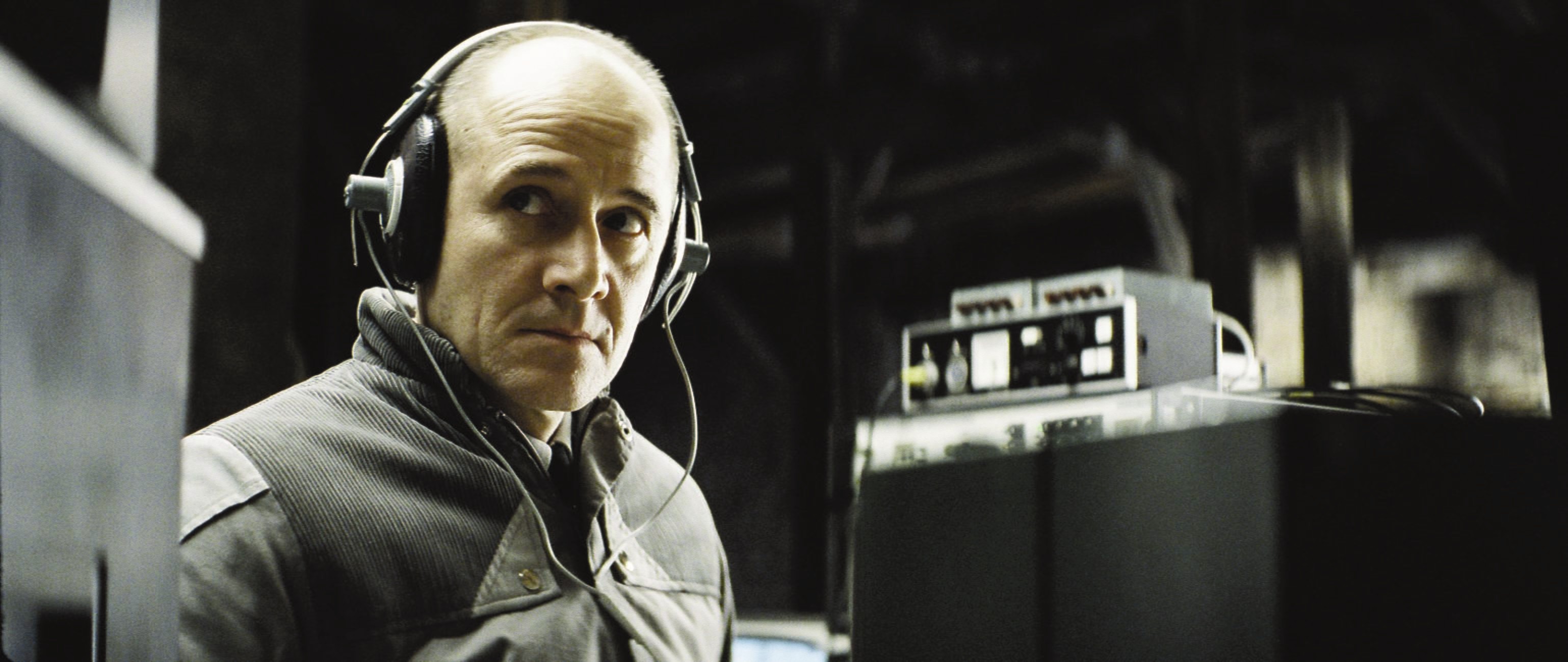German cinema for your classroom
German for young people
Film rental
We have a number of great German movies for you to show in your German classroom.
Das Wunder von Bern, Pünktchen und Anton, Das fliegende Klassenzimmer and Sophie Scholl- Die letzten Tage come with a CD with teaching resources you can use straight away. With prepared film snippets the movies can be analysed and cultural contents can be worked out in class. All movies are in German with English subtitles.
For the other listed titles materials are available as a free download below.
You would like to use one of the movies with the materials in your class? No problem, you can loan the DVD for up to two weeks for your school. The only cost you will have is the postage for returning the movie to us. Please note that the DVD needs to be returned to us within one week after the end of your booked period. For every additional day we charge £2.
How to order?
| Schools in England, Wales and Northern Ireland | Please send an email to the Goethe-Institut London with the title of the film, your school details and the date you require the film teacher-services-london@goethe.de |
| Schools in Scotland | Please send an email to the Goethe-Institut Glasgow with the title of the film, your school details and the date you require the film. Please note: a free library membership is required prior to using this service. To avoid disappointment please allow at least a week from ordering the film to its screening date. library-glasgow@goethe.de |
Movies for Primary Schools:
Recommended from: 8 years onwards
Languages: German with English subtitles Das fliegende Klassenzimmer | © Bavaria Filmverleih- und Produktions GmbH (München-Geiselgasteig), Lunaris Film- und Fernsehproduktion GmbH & Co. KG (München), ZDF 114 min | Germany 2003 | Directed by: Tomy Wigand | Genre: Family, Drama
Das fliegende Klassenzimmer | © Bavaria Filmverleih- und Produktions GmbH (München-Geiselgasteig), Lunaris Film- und Fernsehproduktion GmbH & Co. KG (München), ZDF 114 min | Germany 2003 | Directed by: Tomy Wigand | Genre: Family, Drama Jonathan (12) is sent to the Thomaner boarding school in Leipzig by his adoptive father. It appears to be his last chance after being dismissed from six different schools before.
He quickly makes new friends in the boarding school. His roommates show him their secret hideout: an abandoned railway-car. One evening the owner of the railway-car pops up. Bob came back to Leipzig after a long time away. He allows the boys to continue using the railway-car, where they find the manuscript of the theatre play: “The flying classroom”. They decide to stage the play instead of the nativity play, but their chorus leader Justus doesn’t allow it. Soon after, the boys realize that there has to be a link between the ban, Bob and Justus.
Topics
Boarding school, friendship, choir, school rivalryMaterials
This movie comes with a CD with teaching resources you can use straight away. With prepared film snippets the movie can be analysed and cultural contents can be worked out in class.*Many teachers enjoy this film and find lots to talk about with their students in the German classroom. To ensure you are well prepared to use this film in the classroom, we would like to mention that in an early scene, one of the characters appears in blackface when rehearsing a nativity play as one of the three kings. We mention this in advance to ensure teachers can prepare and adapt their teaching of the film accordingly.
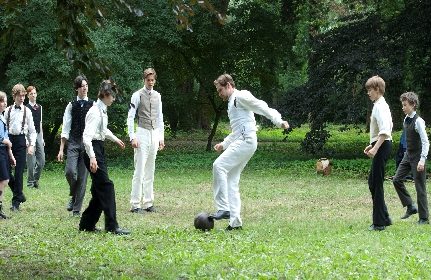 Der ganz große Traum
| © Maria Krumwiede
113 min | Germany 2011 | Directed by: Sebastian Grobler | Genre: Drama
Der ganz große Traum
| © Maria Krumwiede
113 min | Germany 2011 | Directed by: Sebastian Grobler | Genre: Drama
Recommended from: 10 years onwards
Languages: German (with English subtitles)
This film gives the answer to the question: How did football come to Germany? Based on a true event of the teacher Konrad Koch the film evolves an entertaining but serious story. Besides of football, it concerns methods of education, friendship, class distinctions and ethical and moral values such as team spirit, tolerance and trust.To inspire his pupils for the English language and culture the young English teacher Konrad Koch introduces them to the new sport of football. However, Koch´s liberal methods impede the ideas of his conservative colleagues, parents and local dignitaries. Although, his students stand shoulder to shoulder with him.
Topics
Football, education, friendship, class distinctions, values
Materials
You can download classroom materials free of charge here. The teaching resources are made for AS/A2 level-students.
![]() Vocabulary and Film Analysis
Vocabulary and Film Analysis
![]() Tips for Teachers
Tips for Teachers
![]() Worksheet - Part 1
Worksheet - Part 1
![]() Worksheet - Part 2
Worksheet - Part 2
![]() Worksheet - Part 3
Worksheet - Part 3
![]() Worksheet - Part 4
Worksheet - Part 4
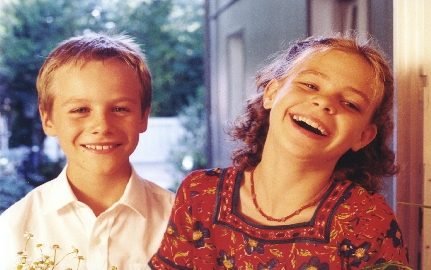 Pünktchen und Anton
| © Bavaria Filmverleih- und Produktions GmbH (München-Geiselgasteig), Lunaris Film- und Fernsehproduktion GmbH & Co. KG (München), ZDF
108 min | Germany 1999 | Directed by: Caroline Link | Genre: Children's film, family film
Pünktchen und Anton
| © Bavaria Filmverleih- und Produktions GmbH (München-Geiselgasteig), Lunaris Film- und Fernsehproduktion GmbH & Co. KG (München), ZDF
108 min | Germany 1999 | Directed by: Caroline Link | Genre: Children's film, family filmRecommended from: 7 years onwards
Languages: German with English subtitles
Ten year old Anton grows up without a father. When his mum gets ill, he takes over her job in the ice cream parlour. This starts to have an effect on his school performance. His school friend Luise Pogge – called Pünktchen – defends him when teacher Bremser wants to punish him for a brawl. Pünktchen comes from a rich family. Her parents are very busy and since they have an au-pair girl and a housekeeper to look after her, they don’t realise that their daughter feels more and more neglected. Anton is dreaming about sending his mother on a holiday to the sea. He feels so helpless that he steals an expensive lighter form the Pogge’s villa and brings himself and his mother in trouble. Will there be a happy end?
Topics
Family, friendship
Materials
This movie comes with a CD with teaching resources you can use straight away. With prepared film snippets the movie can be analysed and cultural contents can be worked out in class.
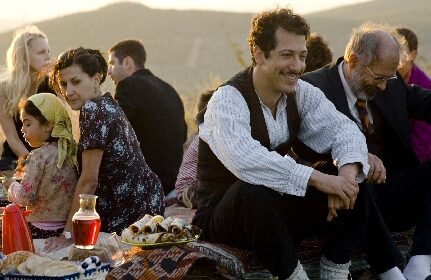 Almanya
| © Roxy Film_Christian Hartmann
95 min | Germany 2011 | directed by: Yasemin Samdereli | Genre: Tragicomedy
Almanya
| © Roxy Film_Christian Hartmann
95 min | Germany 2011 | directed by: Yasemin Samdereli | Genre: Tragicomedy Recommended from: 13 years onwards
Languages: German with English subtitles
In reply to six-year old Cenk’s questions about whether he is Turkish or German, he is told the humorous tale of how his grandfather Hüseyin Yilmaz came to Germany as a guest worker in the 1960s. Now that Hüseyin has retired and received his German passport, he wants his whole extended family to make the reverse journey and so they all set out on a trip to Turkey.
Topics
Identity, family, integration, migration
Theme
“Who or what am I? German or Turkish?” a question, which is surely not only asked by the six-year-old Cenk in this movie. Discussions about home, belongings and traditions enter debates about integration often in a very emotional way. And even between the generations you will find cross-cultural misunderstandings and arguments.
The director of the film is discussing this issue in a sympathetic and still humorous way. She presents new perspectives and uses different angles of view to tell a wonderful story about a quest for a home between Orient and Occident. The film offers a perfect basis to discuss topics like integration and migration in a constructive way.
Materials
Teaching resources are available as a free download here. The teaching resources are made for AS/A2 level-students:
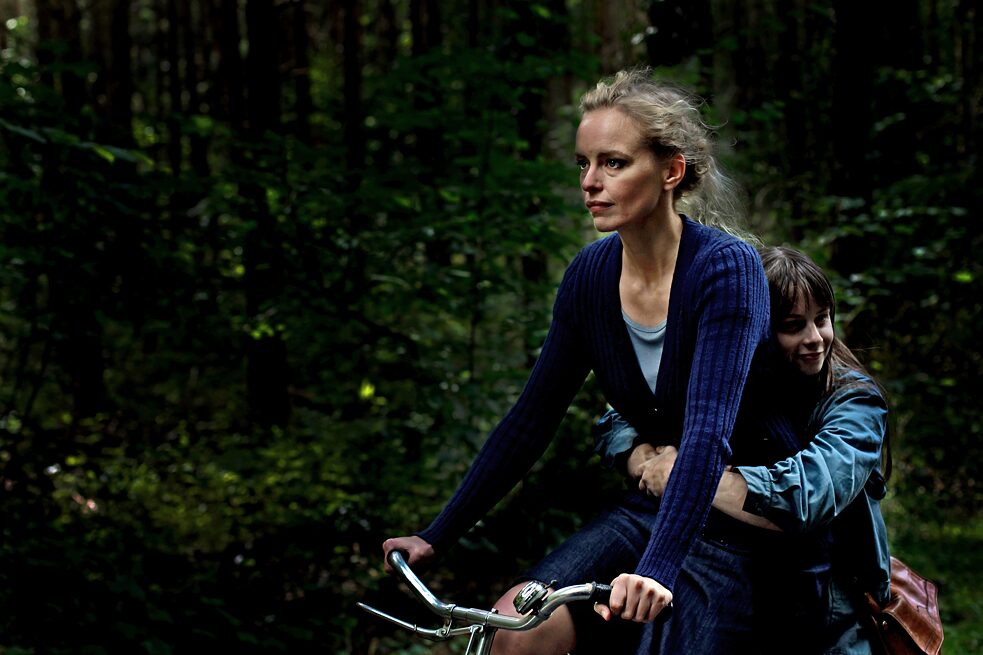 Barbara
| © Christian Schulz/ Schramm Film
108 min | Germany 2012 | Directed by: Christian Petzold | Genre: Drama
Barbara
| © Christian Schulz/ Schramm Film
108 min | Germany 2012 | Directed by: Christian Petzold | Genre: Drama recommended from: 12 years onwards
Languages: German with English subtitles
About nine years before the fall of the wall: Barbara, a doctor from Berlin, applies for an exit permit from the GDR. She is arrested and transferred to a provincial hospital after her release in the summer of 1980. While her lover prepares for her escape to the West via the Baltic Sea, Barbara works as a paediatric surgeon, under frequent observation and controls. Her new boss André appears to be cooperating with the state security employees - but how far would he go if things got serious? He at least seems to approve of Barbara’s commitment to the young outsider Stella. Is he in love with his colleague?
Topics
(German) History, East Germany, Love, Responsibility, Individual (and Society), Socialism
Materials
Teaching resources are available as a free download here:
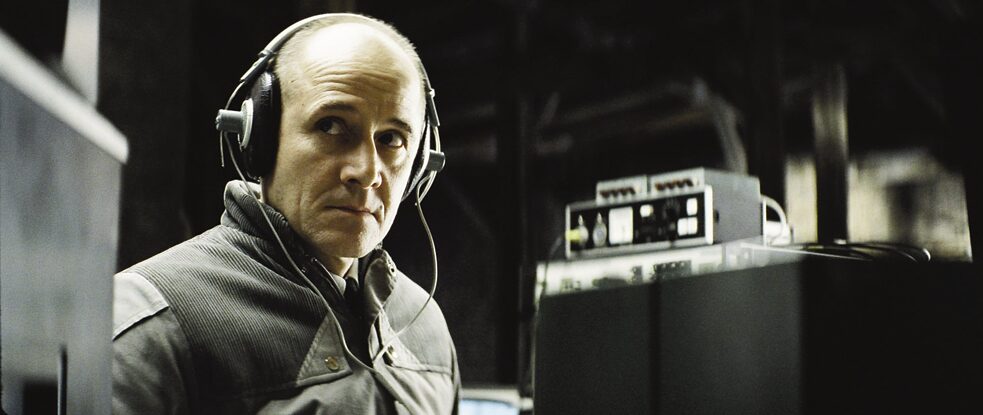 Das Leben der Anderen
| © Wiedemann & Berg Filmproduktion
137 min | Germany 2006 | Directed by: Florian Henckel von Donnersmarck | Genre: Drama
Das Leben der Anderen
| © Wiedemann & Berg Filmproduktion
137 min | Germany 2006 | Directed by: Florian Henckel von Donnersmarck | Genre: Drama recommended from: 15 years onwards
Languages: German with English subtitles
East Berlin, November 1984. The State Security (Stasi) captain Wiesler receives the order to supervise the successful playwright Georg Dreymann and his partner, the highly acclaimed actress Christa-Maria Sieland. Through the observation of these “other” people and the resulting preoccupation with art and literature the informant Wiesler discovers values that were previously unknown to him such as freedom of speech and thought. A new world opens up to him, from which he can hardly escape. But despite his sudden self-doubt, the system can no longer be stopped. A dangerous game begins that destroys Wiesler’s existence as well as the relationship between Dreymann and Sieland. Until the fall of the wall in 1989 everyone has paid a high price.
Topics
East Germany, Society, Stasi, values, identity
Materials
Teaching resources are available as a free download here:
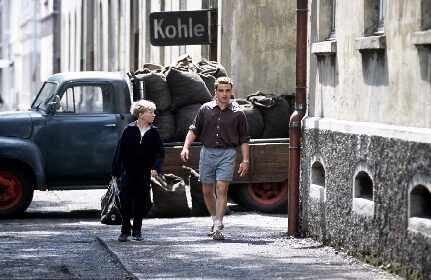 Das Wunder von Bern
| © Georges Pauly/Ostlicht Filmproduktion
117 min | Germany 2003 | Directed by: Sönke Wortmann | Genre: Drama
Das Wunder von Bern
| © Georges Pauly/Ostlicht Filmproduktion
117 min | Germany 2003 | Directed by: Sönke Wortmann | Genre: Dramarecommended from: 15 years onwards
Languages: German with English subtitless
Das Wunder von Bern is connecting a father-son story with the true story of the unexpected victory of the German national team in the football world championship 1954. 9 years after the Second World War, many German soldiers still haven’t returned from war captivity. 9 -year old Matthias never met his father and found a substitute in national team player Helmut Rahn from Essen. After 12 years Matthias’ father eventually returns to his family. But only in the final match in Bern the two find their way back to each other and overcome the war trauma.
Topics
Father and son, football, World War II
Materials
This movie comes with a CD with teaching resources you can use straight away. With prepared film snippets the movie can be analysed and cultural contents can be worked out in class.
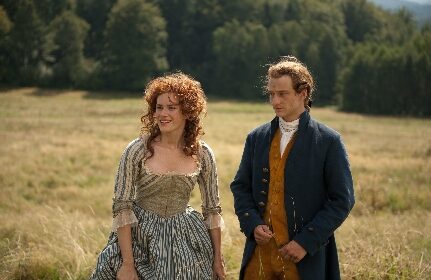 Goethe!
| © Beta Cinema
100 min | Germany 2010 | Directed by: Philipp Stölzl | Genre: Historic Drama
Goethe!
| © Beta Cinema
100 min | Germany 2010 | Directed by: Philipp Stölzl | Genre: Historic Drama Recommended from: 12 years onwards
Languages: German with English subtitles
The young, so far unsuccessful poet Johann Goethe is neglecting his law studies and fails his exam. Therefore his angry father sends him to the Reichskammergericht (Imperial Chamber Court) in a little sleepy town. There Goethe falls madly in love with the young Lotte, who has already been promised to Goethes´ supervisor Albert Kestner.
Topics
Portrayal of Johann Wolfgang von Goethe in film, love and marriage in 18th century, father-son conflict / father-daughter conflict
Materials
Teaching resources are available as a free download here:
 Good Bye, Lenin!
| © X Filme Creative Pool GmbH
120 min | Germany 2003 | Directed by: Wolfgang Becker | Genre: Tragicomedy
Good Bye, Lenin!
| © X Filme Creative Pool GmbH
120 min | Germany 2003 | Directed by: Wolfgang Becker | Genre: Tragicomedy Recommended for: 15 years onwards
Languages: German with English subtitles
East Berlin, autumn 1989: Alex Kerner's mother is in a coma after a heart attack and misses the fall of the Berlin Wall. When she awakes in summer 1990, her doctor declares that excitement of any kind could be fatal. Alex and his friends decide to conceal the fall of the SED regime and pretend that the GDR still exists. The illusion remains perfect until one day the truth can no longer be hidden.
Theme
After the fall of the Berlin Wall, every trace of the former GDR was wiped out thoroughly and consistently. The end came like a shock, too fast to be realised. The film depicts the end of the GDR in two ways: from a social-historical as well as a human-emotional point of view.
Topics
East Germany, German reunification, family
Materials
Teaching resources are available as a free download here:
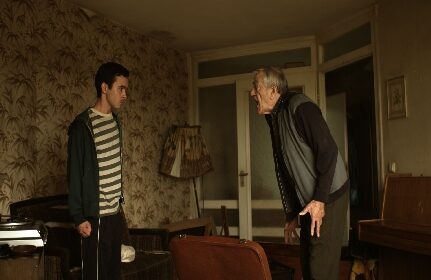 Kaddisch für einen Freund
| © SiMa Film 2011
94 min | Germany 2011 | Directed by: Leo Khasin | Genre: Drama
Kaddisch für einen Freund
| © SiMa Film 2011
94 min | Germany 2011 | Directed by: Leo Khasin | Genre: Drama Recommended from: 12 years onwards
Languages: German with English subtitles; due to strong accents from some of the protagonists language level B1 is recommended.
Ali is new in Kreuzberg, Berlin. As a refugee from Lebanon, he might not be allowed to stay in Germany. The tough boys from his neighbourhood dare him to break into the flat of an old neighbour who is a Russian-Jewish emigrant. Ali gets caught and to avoid his family’s deportation, he must make amends with the old man. This is the touching story of an unusual friendship.
Topics
Growing up, refugees, religion, living in Germany
Materials
You can download classroom materials free of charge here:
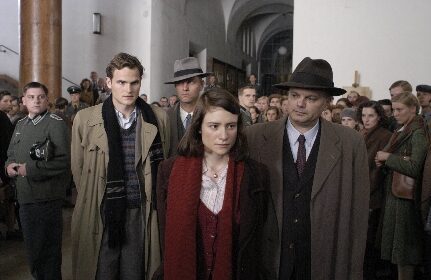 Sophie Scholl
| © Goldkind Filmproduktion GmbH & Co. KG
116 min | Germany 2005 | Directed by: Marc Rothemund | Genre: Historic drama
Sophie Scholl
| © Goldkind Filmproduktion GmbH & Co. KG
116 min | Germany 2005 | Directed by: Marc Rothemund | Genre: Historic dramaRecommended from: 12 years onwards
Languages: German with English subtitles
Munich, February 1943: As a member of the resistance group “The White Rose” Sophie Scholl helps producing leaflets against the NS-Regime. She supports her brother Hans’ idea to distribute the leaflets at the University of Munich. Whilst distributing leaflets brother and sister get denounced by the caretaker and get immediately arrested by the Gestapo.
Robert Mohr, a special investigator of the Gestapo and an experienced interrogator threatens Sophie with a prosecution of treason, enemy favouritism and army force demoralisation. Composed, confident and extremely clever Sophie tries to deny. She almost is successful in convincing Mohr of her innocence, the release form is issued, but in the last moment a call comes in, which turns everything around…
Topics
NS-Regime, resistance, The White Rose
Materials
This movie comes with a CD with teaching resources you can use straight away. With prepared film snippets the movie can be analysed and cultural contents can be worked out in class.
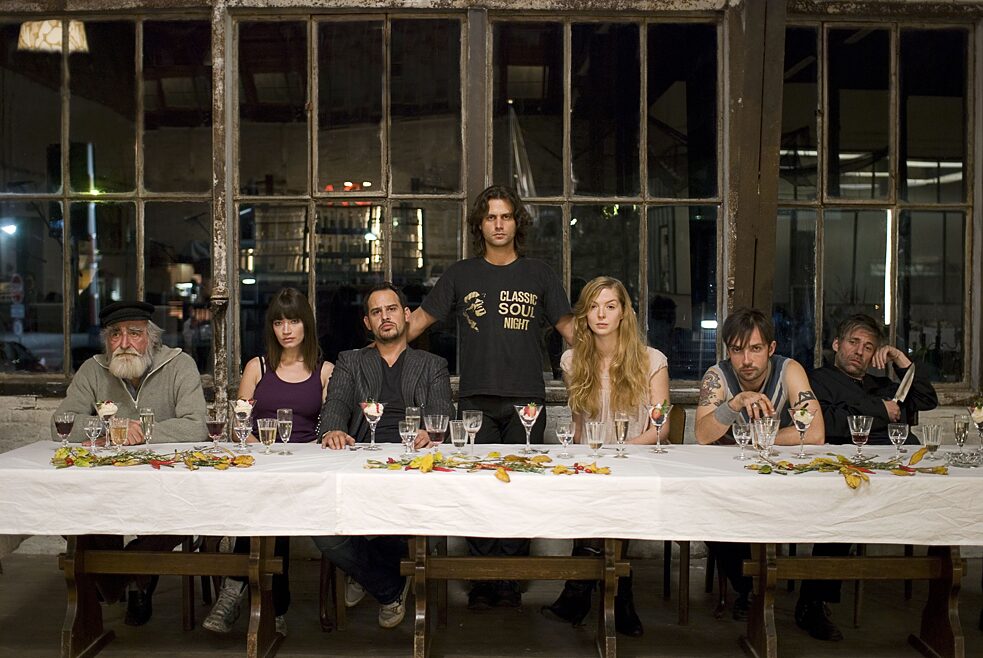 Soul Kitchen
| © Corazón International GmbH & Co. KG
99 min | Germany 2009 | Directed by: Fatih Akin | Genre: Comedy
Soul Kitchen
| © Corazón International GmbH & Co. KG
99 min | Germany 2009 | Directed by: Fatih Akin | Genre: Comedy Recommended from: 12 years onwards
Languages: German with English subtitles
The German-Greek gastronomer Zinos has a tough time: First his girlfriend Nadine moves to Shanghai to work there, then he suffers from a slipped disc. Out of his need, he hires the eccentric top chef Zayn. This leads to his Hamburg pub Soul Kitchen turning more and more into a trendy restaurant. One thing leads to another and suddenly Zinos is forced to defend Soul Kitchen against property sharks, tax authorities and his gambling-addicted brother.
Topics
Restaurant, disaster, family, relationship
Materials
Teaching resources are available as a free download here:
